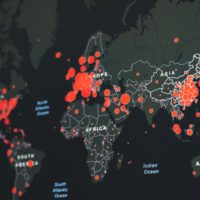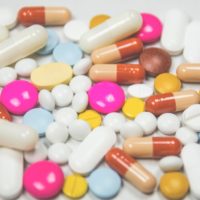-

Happy Birthday to us…
Today is a year since HealthLumen was founded. And, despite the current situation, we are fortunate that we have much to celebrate. To get the company launched we completed a successful transaction with the UK Health Forum, taking ownership of a powerful microsimulation platform with a 12-year track record of modelling non-communicable diseases and the […]
-

Simulating the future: The role of computer modelling in a post-COVID-19 world
In collaboration with our charity partner The Royal Society for Public Health. Our COO and Co-Founder Laura Webber has set out the role of computer modelling in decision making in the post-COVID-19 world. Our first guest blog for RSPH. For further resources on COVID-19 please visit the RSPH COVID-19 hub. This resource is being updated […]
-

NEWS: Long-term health impacts of changing air pollution exposure in London
Today, the Mayor of London published a HealthLumen report commissioned by Transport for London and the Greater London Authority modelling the long-term health impacts of changing exposure to NO2 and PM2.5 in London. The report reveals that by 2050 the impact of current air quality policies, including the London Environment Strategy are predicted to result […]
-

NEWS: The Health of the Nation – A Strategy for Healthier Longer Lives
Yesterday saw the launch of the National Strategy to meet the government’s stated mission of “five extra healthy years by 2035”. The key challenge this initiative aims to address is that, whilst we are all living longer, too many of these years are just extra years of bad health. There are also continued, significant health […]
-

2020 Vision: And beyond
The term “20/20 vision” informally denotes perfect eyesight. So, moving into the year 2020 it is an apt metaphor for our goal, which is to help improve global population health through better decision-making. Our forecasting methodology – based on a microsimulation model – integrates health, economic and population data from multiple sources as a baseline […]
-

Launching our start-up
As Business Operations Manager at HealthLumen, I have been responsible for getting in place all the systems and processes we need to launch the company. I’m sharing here some of our experiences, and the decisions made on the systems we chose, which I hope will be useful for other start-ups aiming to get up and […]
-

A sweet alignment: Microsimulation and the soft drinks levy
In the weeks before his election Boris Johnson called for a review and potential roll back of ‘sin taxes’ which bemused experts, including the public health community. He stated that “once we leave the EU on 31 October, we will have a historic opportunity to change the way politics is done in this country. A […]
-

Microsimulation modelling for policy change
How do you answer questions about the health of the population? How do you test ideas for policy and intervention change when the option for an experiment or randomized control trial does not exist? High level, national public health policies can have a significant impact on shaping and creating the environments – physical, food, healthcare, […]
-

What is microsimulation and why do we use it?
Originally envisioned by the American economist Guy Orcutt in 1957, microsimulation models have become widely used within economics, and are increasingly used in public and population health and other fields to model the outcomes of government policy. While more complex and requiring more data than simpler arithmetic and representative agent models, microsimulation models use individual-level […]
-

The need for population health in healthcare
How do you define ‘Healthcare’? Treating disease? Improving mobility? Taking drugs to reduce pain? Perhaps all of these? This illustrates that healthcare is very much focused on treating illness, rather than preventing it. Our system can be better termed ‘ill-healthcare’. With an ageing population and growing burden of non-communicable disease, the NHS is overworked and […]